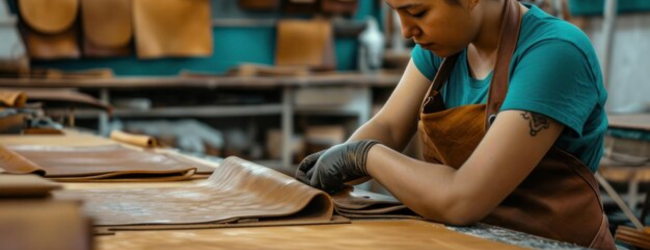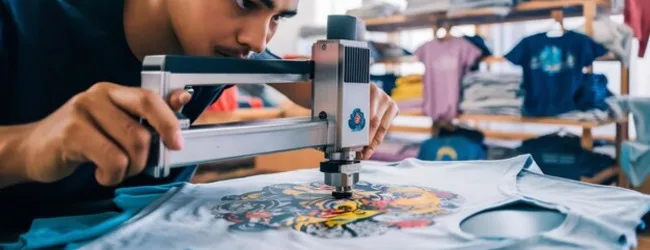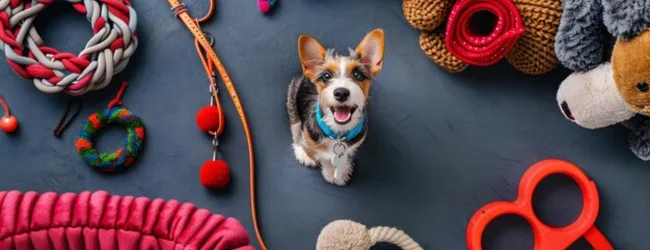Table of contents
- 1. Handmade Soap & Cosmetics
- 2. Custom Woodworking Products
- 3. Leather Goods Manufacturing
- 4. Customized Apparel Printing
- 5. Handmade Candles
- 6. Food Packaging Manufacturing
- 7.Eco-Friendly Cleaning Products
- 8. Pet Accessories Manufacturing
- 9. Ceramic Products Manufacturing
- 10. Custom Gift Boxes
- Conclusion
- Frequently Asked Questions (FAQs)
Starting your own manufacturing business doesn’t always require massive capital or a sprawling factory. With the right idea and execution, you can build a profitable venture from a small scale. Here are 10 compelling small scale manufacturing business ideas that offer excellent potential for growth:
1. Handmade Soap & Cosmetics

Crafting unique, natural soaps and cosmetics using locally sourced ingredients. This includes items like bath bombs, lotions, and essential oil-infused products.
a. Why this Idea:
- Growing demand for organic and handmade personal care products.
- Low startup costs and high-profit margins.
- Flexibility to create custom products.
b. Licenses Required:
- Business registration.
- Cosmetic manufacturing license (depending on local regulations).
- Ingredient safety certifications.
c. Investment Required:
- $1,000 – $5,000 (ingredients, packaging, basic equipment).
d. How to Sell:
- Online marketplaces (Etsy, Amazon).
- Local farmers’ markets and craft fairs.
- Direct sales through a website or social media.
- Collaborating with local boutiques and spas.
e. Any other Requirements:
- Knowledge of cosmetic formulation and safety.
- Attractive packaging and branding.
f. Challenges in the Idea:
- Maintaining consistent product quality.
- Meeting regulatory standards.
- Building a strong brand identity.
g. How to overcome the Challenges:
- Thorough testing and quality control.
- Staying updated on industry regulations.
- Investing in professional branding and marketing.
Example: A business specializing in aromatherapy soaps using local herbs and flowers. They offer subscription boxes with seasonal scents and personalized gift sets, targeting eco-conscious consumers.
2. Custom Woodworking Products

Manufacturing bespoke wooden items like furniture, decorative pieces, and personalized gifts.
a. Why this Idea:
- High demand for unique, handcrafted wooden products.
- Potential for high-profit margins on custom orders.
- Scalable business model.
b. Licenses Required:
- Business registration.
- Permits for operating woodworking tools.
c. Investment Required:
- $2,000 – $10,000 (tools, wood materials, workspace).
d. How to Sell:
- Online platforms (Etsy, specialized woodworking sites).
- Local furniture stores and craft shops.
- Direct commissions from clients.
- Social media marketing.
e. Any other Requirements:
- Woodworking skills and craftsmanship.
- Design software and tools.
f. Challenges in the Idea:
- Competition from mass-produced furniture.
- Sourcing high-quality wood.
- Managing custom orders and deadlines.
g. How to overcome the Challenges:
- Focus on niche markets and unique designs.
- Build relationships with sustainable wood suppliers.
- Implement efficient project management.
Example: A business that creates custom-designed wooden pet furniture, incorporating unique features like built-in scratching posts or personalized name engravings, catering to pet owners seeking high-quality, stylish pet accessories.
3. Leather Goods Manufacturing

Producing handcrafted leather items such as wallets, belts, bags, and accessories.
a. Why this Idea:
- High perceived value of leather goods.
- Demand for durable and stylish accessories.
- Potential for customization and personalization.
b. Licenses Required:
- Business registration.
c. Investment Required:
- $1,500 – $7,000 (leather, tools, sewing machines).
d. How to Sell:
- Online marketplaces.
- Boutique stores and gift shops.
- Direct sales through a website.
- Craft fairs and markets.
e. Any other Requirements:
- Leatherworking skills and experience.
- Quality leather sourcing.
f. Challenges in the Idea:
- Working with expensive materials.
- Achieving high-quality finishes.
- Competing with established brands.
g. How to overcome the Challenges:
- Start with smaller, simpler products.
- Invest in quality tools and training.
- Build a strong brand story and unique designs.
Example: A business that manufactures minimalist leather wallets with RFID blocking technology, focusing on sleek designs and secure functionality, targeting tech-savvy professionals.
💡 Pro Tip: If you want to start a Small Scale Manufacturing Business but have too many doubts, connect with a Small Scale Manufacturing Business expert from Boss Wallah for guidance – https://bw1.in/1116
4. Customized Apparel Printing

Creating personalized t-shirts, hoodies, and other apparel using screen printing or direct-to-garment (DTG) printing.
a. Why this Idea:
- High demand for custom apparel for events, businesses, and personal use.
- Scalable business model with low overhead costs.
- Creative and customizable product offerings.
b. Licenses Required:
- Business registration.
c. Investment Required:
- $2,000 – $8,000 (printing equipment, software, apparel).
d. How to Sell:
- Online platforms (custom apparel websites).
- Local businesses and organizations.
- Direct sales through a website or social media.
e. Any other Requirements:
- Graphic design skills.
- Knowledge of printing techniques.
f. Challenges in the Idea:
- Competition from established printing services.
- Managing inventory and order fulfillment.
- Maintaining consistent print quality.
g. How to overcome the Challenges:
- Specialize in a niche market (e.g., eco-friendly apparel).
- Utilize print-on-demand services.
- Invest in high-quality printing equipment.
Example: A business that focuses on printing sustainable and organic cotton apparel with unique, hand-drawn designs, appealing to environmentally conscious consumers and art enthusiasts.
ALSO READ | Start an Online Marketing Home based Business : Step-by-Step Guide for 2025
5. Handmade Candles

Producing artisanal candles using natural waxes, essential oils, and unique scents.
a. Why this Idea:
- Growing popularity of aromatherapy and home decor.
- Low startup costs and high-profit margins.
- Creative and customizable product offerings.
b. Licenses Required:
- Business registration.
c. Investment Required:
- $500-$3000(wax, fragrances, wicks, containers)
d. How to Sell:
- Online marketplaces.
- Local craft fairs and markets.
- Boutique stores and gift shops.
- Direct sales through a website.
e. Any other Requirements:
- Knowledge of candle-making techniques.
- Quality fragrance sourcing.
f. Challenges in the Idea:
- Maintaining consistent scent and quality.
- Competing with mass-produced candles.
- Shipping fragile items.
g. How to overcome the Challenges:
- Use high-quality ingredients and rigorous testing.
- Create unique scent combinations and designs.
- Use secure packaging.
Example: A business that creates soy wax candles with layered scents and embedded crystals, offering a unique sensory experience and appealing to those seeking holistic home decor.
6. Food Packaging Manufacturing

Producing eco-friendly or specialized food packaging solutions like biodegradable containers, custom boxes, or reusable bags.
a. Why this Idea:
- Growing demand for sustainable and food-safe packaging.
- Opportunity to cater to local food businesses and restaurants.
- Potential for recurring orders.
b. Licenses Required:
- Business registration.
- Food-grade packaging certifications.
- Environmental compliance permits.
c. Investment Required:
- $5,000 – $20,000 (machinery, raw materials, workspace).
d. How to Sell:
- Direct sales to restaurants, cafes, and food producers.
- Online business-to-business (B2B) platforms.
- Partnerships with food distributors.
e. Any other Requirements:
- Knowledge of food safety regulations.
- Access to reliable raw material suppliers.
f. Challenges in the Idea:
- Maintaining consistent quality and hygiene standards.
- Meeting bulk order demands.
- Competing with established packaging manufacturers.
g. How to overcome the Challenges:
- Invest in high-quality machinery and quality control.
- Build strong relationships with suppliers.
- Focus on niche markets and custom solutions.
Example: A business specializing in compostable food containers made from bamboo fiber, targeting restaurants and food trucks aiming to reduce their environmental footprint.
7.Eco-Friendly Cleaning Products

Manufacturing natural and sustainable cleaning solutions like soaps, detergents, and disinfectants.
a. Why this Idea:
- Increasing consumer awareness of environmental health.
- Demand for non-toxic and biodegradable cleaning products.
- Low ingredient cost and good profit margins.
b. Licenses Required:
- Business registration.
- Product safety certifications.
c. Investment Required:
- $1,000 – $5,000 (ingredients, packaging, mixing equipment).
d. How to Sell:
- Online marketplaces.
- Local health food stores and markets.
- Direct sales through a website or social media.
e. Any other Requirements:
- Knowledge of natural cleaning ingredients.
- Effective branding and marketing.
f. Challenges in the Idea:
- Ensuring product efficacy and safety.
- Competing with established cleaning brands.
- Obtaining consumer trust.
g. How to overcome the Challenges:
- Conduct thorough testing and certifications.
- Highlight the benefits of natural ingredients.
- Provide customer testimonials and build a strong online presence.
Example: A business that creates concentrated cleaning tablets made from plant-based ingredients, packaged in dissolvable sachets, reducing plastic waste and offering convenient, eco-friendly cleaning solutions.
8. Pet Accessories Manufacturing

Producing handcrafted pet accessories like collars, leashes, toys, and bedding.
a. Why this Idea:
- Growing pet ownership and spending.
- Demand for unique and high-quality pet products.
- High profit margins on specialized items.
b. Licenses Required:
- Business registration.
c. Investment Required:
- $1,000 – $5,000 (materials, sewing machines, tools).
d. How to Sell:
- Online marketplaces.
- Local pet stores and veterinary clinics.
- Direct sales through a website or social media.
- Pet shows and events.
e. Any other Requirements:
- Sewing or crafting skills.
- Knowledge of pet safety and comfort.
f. Challenges in the Idea:
- Ensuring product durability and safety.
- Managing inventory and custom orders.
- Competition from large pet supply companies.
g. How to overcome the Challenges:
- Use high-quality materials and strong construction.
- Offer personalized and custom-made options.
- Focus on a niche market, like organic pet toys.
Example: A business that manufactures personalized, waterproof dog collars with embroidered names and reflective strips, focusing on safety and style for active pet owners.
ALSO READ | Start Home-Based Online Tutoring Business: Guaranteed Success in 10 Easy Steps
9. Ceramic Products Manufacturing

Creating handmade ceramic items like pottery, tableware, and decorative pieces.
a. Why this Idea:
- Demand for unique and artisanal home decor.
- Potential for high-profit margins on custom designs.
- Creative and artistic business.
b. Licenses Required:
- Business registration.
c. Investment Required:
- $2,000 – $8,000 (kiln, pottery wheel, clay, glazes).
d. How to Sell:
- Online marketplaces.
- Local craft fairs and art galleries.
- Direct sales through a website or studio.
- Collaborations with interior designers.
e. Any other Requirements:
- Ceramic skills and artistry.
- Knowledge of glazing and firing techniques.
f. Challenges in the Idea:
- Achieving consistent quality and finishes.
- Shipping fragile items.
- High energy cost for kilns.
g. How to overcome the Challenges:
- Invest in quality equipment and training.
- Use secure packaging and shipping methods.
- Explore energy efficient kiln options.
Example: A business that produces hand-painted ceramic planters with unique, nature-inspired designs, targeting plant enthusiasts and home decorators seeking artistic and functional pieces.
10. Custom Gift Boxes

Assembling and packaging curated gift boxes for various occasions and themes.
a. Why this Idea:
- Growing trend of personalized gifting.
- Flexibility to create diverse and themed boxes.
- Potential for corporate and event gifting.
b. Licenses Required:
- Business registration.
c. Investment Required:
- $1,000-$5,000(Boxes, filler, products, packaging materials)
d. How to Sell:
- Online marketplaces.
- Direct sales through a website or social media.
- Collaborations with local businesses.
- Corporate gifting.
e. Any other Requirements:
- Strong organizational and packaging skills.
- Creative product curation.
f. Challenges in the Idea:
- Managing inventory and sourcing diverse products.
- Ensuring timely delivery and presentation.
- Keeping up with gifting trends.
g. How to overcome the Challenges:
- Build relationships with reliable suppliers.
- Implement efficient order and shipping systems.
- Conduct market research and adapt to changing preferences.
Example: A business that creates themed gift boxes for new parents, featuring organic baby products, handmade toys, and self-care items, targeting thoughtful and practical gifting.
Need Expert Guidance?
Starting a business can be challenging, but you don’t have to do it alone! At Boss Wallah, our 2,000+ business experts are ready to provide valuable insights and guidance. Whether you need help with marketing, finance, sourcing, or any other area of any business, our business experts are here to help you succeed- https://bw1.in/1116
Confused about Which Business to Start?
Want to start your own business but unsure which one to choose? Explore Boss Wallah, where you’ll find 500+ courses by successful business owners, featuring practical, step-by-step guides on starting and growing various businesses.
Find your perfect business idea today – https://bw1.in/1111
Conclusion
Starting a small scale manufacturing business can be a rewarding venture. With careful planning, dedication, and a unique product offering, you can turn your passion into a profitable business. Remember to focus on quality, build
Frequently Asked Questions (FAQs)
- What are the most profitable small scale manufacturing businesses?
- Businesses with high-profit margins and low startup costs, like handmade soaps, candles, and custom woodworking, tend to be very profitable.
- How much investment is needed to start a small manufacturing business?
- Investment varies widely, from $500 for candle making to $20,000 for food packaging, depending on the scale and complexity.
- What licenses are required for a manufacturing business?
- Required licenses depend on the product and location, but typically include business registration, product safety certifications, and environmental permits.
- How can I sell my manufactured products?
- Online marketplaces, direct sales, local markets, and collaborations with retailers are effective sales channels.
- What are the biggest challenges in starting a manufacturing business?
- Challenges include maintaining quality, managing inventory, competing with established brands, and navigating regulations.
- How do I find reliable suppliers for raw materials?
- Online directories, industry trade shows, and local business networks are good resources for finding suppliers.
- Is it possible to run a manufacturing business from home?
- Yes, Many of the ideas listed above, can be started and initially run from home. This is especially true for businesses that require less space and heavy machinery
- How do I market my small manufacturing business effectively?
- Utilize social media marketing, build a professional website, participate in local events, and leverage customer testimonials. Focus on creating high-quality content and engaging with your target audience.


